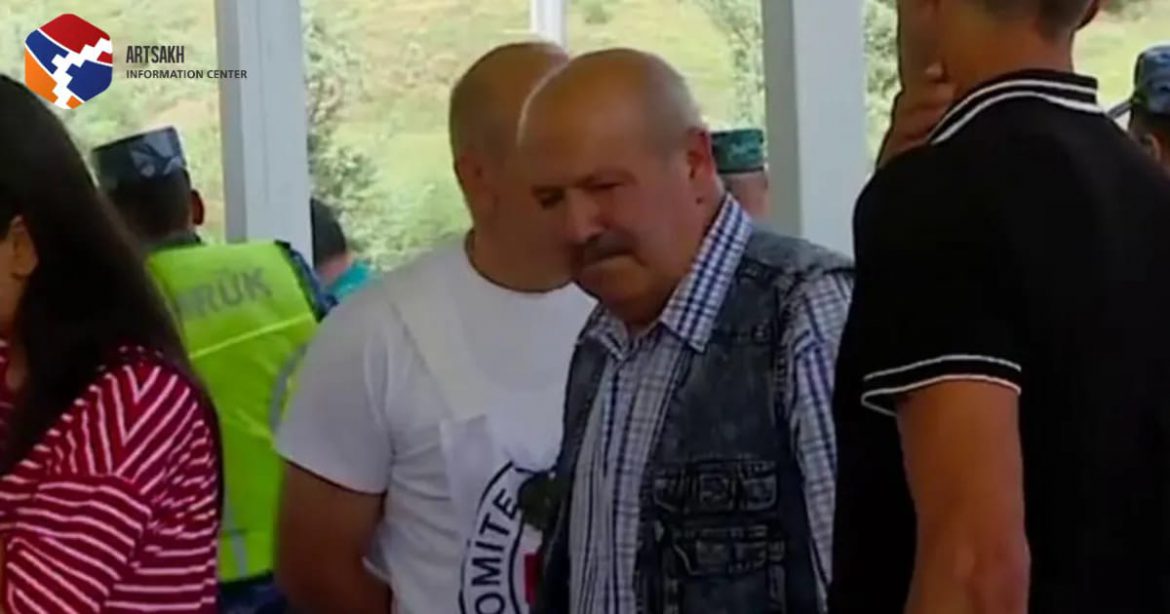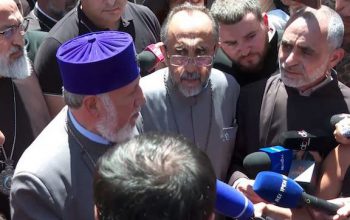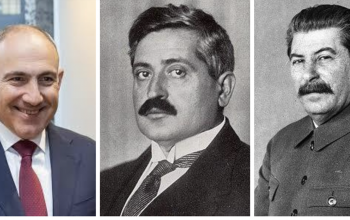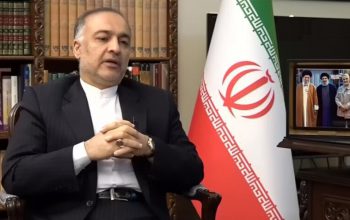A resident of Artsakh was arrested on August 1 and accused of illegally entering Azerbaijani territory.
55-year-old Rashid Beglaryan was arrested by Azerbaijani forces near Azerbaijan’s border checkpoint on the Berdzor (Lachin) Corridor. Azerbaijani authorities said that Beglaryan had illegally crossed the Armenia-Azerbaijan state border and entered the Lachin district, which came under Azerbaijani control after the 2020 Artsakh War. Artsakh authorities say that Beglaryan lost his way near the village Hin Shen and accidentally entered Azerbaijani-controlled territory. Beglaryan has lived in Khndzristan since he was displaced from Shushi during the 2020 Artsakh War.
Beglaryan is the second Artsakh resident to have been arrested by Azerbaijani forces this week. 68-year-old Vagif Khachatryan was arrested by Azerbaijani soldiers at the Azerbaijani border checkpoint along the Berdzor Corridor on July 29. Khachatryan suffers from a serious heart disease and was being transferred to a hospital in Yerevan for an emergency operation. He was part of a group of patients transported by the International Committee of the Red Cross (ICRC), which had provided the Azerbaijani side with a list of the patients and received its approval in advance.
Azerbaijan set up a military checkpoint along the Berdzor Corridor on April 23, 2023, placing all movement between Artsakh and Armenia completely under the control of Azerbaijani border guards. The checkpoint tightened the ongoing blockade of Artsakh, launched by Azerbaijan in December 2022.
The ICRC and Russian peacekeeping mission were the sole entities delivering humanitarian aid, including food, medicine and other basic supplies, to Artsakh since the start of the blockade. However, Azerbaijani border guards have prevented the ICRC and Russian peacekeepers from transporting humanitarian assistance to the region since mid-June. Azerbaijan has also blocked the ICRC from transporting patients seeking medical assistance to Armenia several times in the past two months.
The European Court of Human Rights requested on August 2nd that Azerbaijan provide information on Khachatryan’s whereabouts, health condition, medical treatment and possible return by August 8, in response to an appeal from Armenian authorities. The ICRC said that a Red Cross delegation, including a medical doctor, visited Khachatryan on July 29 and gave him the possibility to contact his family. Azerbaijani authorities say that Khachatryan has been placed in a medical facility in Baku.
Azerbaijani authorities accused Khachatryan of participating in a massacre of Azerbaijani civilians in the Meshali village of the Khojaly region in December 1991 during the first Artsakh War. The Prosecutor General’s office of Azerbaijan has charged Khachatryan with “genocide” and “deportation or forced exile of population.” It said that an international arrest warrant had been issued for Khachatryan in 2013.
Artsakh authorities have strongly denied these accusations. The office of Armenia’s Human Rights Defender said that there is no data on Khachatryan in any international intelligence system. Artsakh’s Human Rights Defender Gegham Stepanyan called the criminal case opened against Khacatryan a “false and far-fetched pretext for his abduction.”
Armenia’s Foreign Ministry called the arrest of a patient under the protection of the ICRC a “flagrant violation of international humanitarian law” and a “war crime.” It said that the arrest is aimed at halting the activities of the ICRC in Artsakh while preventing the access of other humanitarian organizations to Artsakh.
Azerbaijani media have circulated images and footage that supposedly implicate Khachatryan in committing war crimes. Much of this evidence has been debunked, however. Azerbaijani press has widely published a picture that it claims depicts Khachatryan during the first Artsakh War. Fact checkers studied the image and determined that it does not picture Khachatryan, but rather features an ethnic Azeri in an area controlled by Azerbaijan in May 1994, three years after the events at Meshali.
The extent of Khachatryan’s participation in the first Artsakh War is unclear. Artak Beglaryan, advisor to the Artsakh State Minister, denied the accusation of war crimes directed at Khachatryan, tweeting, “Like all males, he protected his homeland in the 1991-94 war.”
Armenian analysts are warning that Khachatryan’s arrest sets a dangerous precedent for the arbitrary arrest of all Armenian men in Artsakh. Most of the adult male population of Artsakh has served in the military, meaning every man over the age of 18 could be accused of committing war crimes and arrested by Azerbaijani forces. Indeed, Azerbaijan’s Foreign Ministry suggested that such arrests will continue, stating that Azerbaijan will “continue to act within the criminal proceedings and international legislation to bring these people to justice.”
“Given that every fit man over the age of 18 has served in the self-defense force of Nagorno-Karabakh based on conscription, whether during the First Karabakh War, or during the Four-Day War in 2016, or the 2020 Artsakh War, Azerbaijani security services may increasingly target and detain every male in Nagorno-Karabakh, which may turn into a deprivation of Nagorno-Karabakh’s male population resembling the Srebrenica scenario,” foreign policy consultant Sossi Tatikyan wrote in an op-ed for EVN Report.
By Lilian Avedian
The Armenian Weekly




